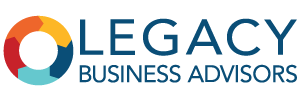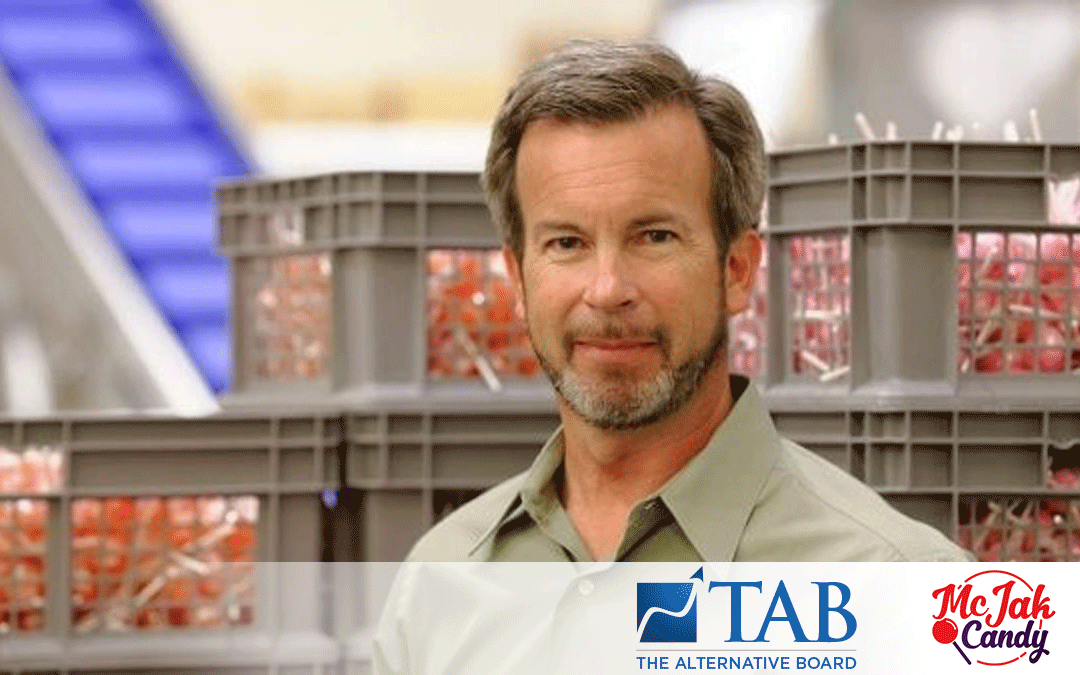McJak Candy was founded in 1982 in the kitchens of two local women, Karen McCurdy and Sue Lonjak. As demand for their homemade candy grew, they expanded and built a factory. In 2000, they sold the business to Larry and Francine Johns, who promised to continue the principles the company was built on. Larry has expanded the Medina, Ohio factory from 9,600 to 65,000 square feet, with 42 employees plus seasonal temps year-round. McJak’s biggest selling product is gourmet lollipops, producing tens of millions per year, mostly sold under private label brands. Owner Larry Johns has been a member of The Alternative Board (TAB) for the past five years and finds great value in the expertise and unbiased opinions of other small business owners in his TAB Western Reserve chapter.
What inspired you to start your own business?
I studied electrical engineering during college in the 1980s. I worked in automation programming and electrical controls for Proctor & Gamble and Kimberly Clark, and eventually got into project management and operations. I liked all aspects of business – from finance and legal to product development and package graphics. But you can’t wear all those hats at a bigger company, so in the late 1990s my wife and I started working with business brokers from all over country. We did our due diligence searching for a business to buy, when the perfect opportunity came up with McJak. We’d never even heard of Medina – but we quit our jobs, sold our house and moved our family here! It’s worked out well for us.
What do you love most about owning your own business?
I like interacting with my team – celebrating meeting a deadline or setting a new record. And I like going into a store, seeing our product and remembering the first time we did a prototype, taking it to a first show, getting feedback to improve it – and suddenly there it is on the shelf of a national chain. It’s so different from working for a large corporation. With my own business, I have the freedom to be creative and try new ideas.
Why did you join the local TAB peer advisory group?
When Mark Dorman first approached me about it, I wasn’t sure if I would get value out of it. I told him none of these people would know about the candy business. Even if they were smart business leaders, they couldn’t relate to my unique issues. Mark invited me to just sit in on a meeting, at no charge, and see what I think. By the first break of the first meeting – I said, all right, sign me up! That was five years ago.
Any golden lessons you’ve learned from your TAB group?
If you bring your tough problems to the group, you get good input and unbiased answers. TAB has helped me make critical decisions. For example, we never had a fulltime salesperson — but as we grew, I realized we should hire someone. I had someone in mind with a lot of experience in the food and candy industry — but I could hire someone right out of college for a lot less salary. I described the issue to the TAB group, and they asked great questions. One member eventually said, “If you don’t call her the minute we leave this meeting, you’re crazy!” I hired her and she’s been a perfect fit. We’ve grown our new categories in double-digit rates since she came on board.
Do you encourage other small business owners join TAB group?
TAB gives you a board of directors who aren’t in your day-to-day business. They give you objective feedback and your TAB leader holds you accountable. And the networking is very valuable. We found an accounting firm light years beyond what we had and a great attorney for sound legal advice.
How important is it to have an exit strategy?
At a small business, if something happens to the key person, things can start to fall apart quickly. We didn’t have a good plan until Mark Dorman’s guidance. We now have life insurance to cover the cost of recruiting a new leader and a “stay bonus plan” for key employees so no one jumps ship in the unlikely event that something were to happen to me. This gives me peace of mind – and shows our employees we’re investing for the long run and everyone’s job is safe.
Biggest lesson learned about achieving success?
Our first three years were rough. But it made us a better company. You can’t just cry or complain about issues in your business. Focus every day on how to make your business better. Every business has setbacks that will pass. Be committed, persistent and resourceful.


Recent Comments